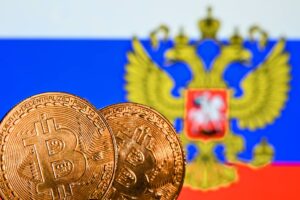Russian President Vladimir Putin has taken a significant step towards integrating cryptocurrency into the Russian and global economy by officially signing a law that legalizes cryptocurrency mining. This move marks a pivotal moment in Russia’s approach to digital currencies, potentially setting the stage for the country to become a major player in the global cryptocurrency market.
The Legal Framework for Cryptocurrency Mining in Russia
The newly signed law introduces several key concepts that are critical to the regulation of cryptocurrency in Russia. These include the definitions of digital currency mining, mining pools, and mining infrastructure operators. By formally recognizing these activities, Russia is acknowledging the importance of cryptocurrency mining as part of its economic turnover.
Crucially, the law distinguishes between the creation of digital currencies and their circulation, signaling that Russia sees mining as an essential economic activity rather than merely the generation of new digital assets. This distinction is likely to have significant implications for how cryptocurrencies are treated under Russian law, particularly in terms of taxation and regulation.

President Putin underscored the importance of establishing a legal framework for digital currencies in Russia. He highlighted the potential of digital currencies to contribute to Russia’s economic development, particularly in light of the ongoing global shift towards digital finance.
Who Can Mine Cryptocurrency in Russia?
Under the new legislation, only Russian legal entities and individual entrepreneurs who are registered with the government will be permitted to engage in cryptocurrency mining on a commercial scale. This requirement ensures that the government maintains oversight and control over the industry, potentially preventing unregulated and illegal activities.
However, the law also makes allowances for individual miners, who can continue to participate in cryptocurrency mining without needing to register as long as their energy consumption stays within limits set by the government. This provision opens the door for small-scale miners to contribute to the cryptocurrency ecosystem without the burden of extensive regulatory compliance.

Trading Digital Financial Assets
In addition to regulating mining activities, the new law also addresses the trading of digital financial assets on Russian blockchain platforms. While the law permits such trading, it grants the Bank of Russia the power to ban the placement of certain assets if they are deemed a threat to the country’s financial stability.
This cautious approach reflects Russia’s broader concerns about the potential risks associated with cryptocurrencies, particularly in terms of their impact on the national economy and financial system. By giving the Bank of Russia the authority to intervene, the government is signaling its intention to closely monitor the development of the cryptocurrency market and take action when necessary to protect its financial interests.

The law signed by President Putin marks a significant milestone in Russia’s approach to cryptocurrency. By legalizing and regulating cryptocurrency mining and trading, Russia is positioning itself to take advantage of the economic opportunities presented by digital currencies. However, the cautious approach taken by the government, particularly in terms of allowing the Bank of Russia to regulate certain aspects of the market, indicates that Russia is keen to balance innovation with stability. As the law takes effect, it will be interesting to see how Russia’s cryptocurrency landscape evolves and what impact it will have on the global market.
